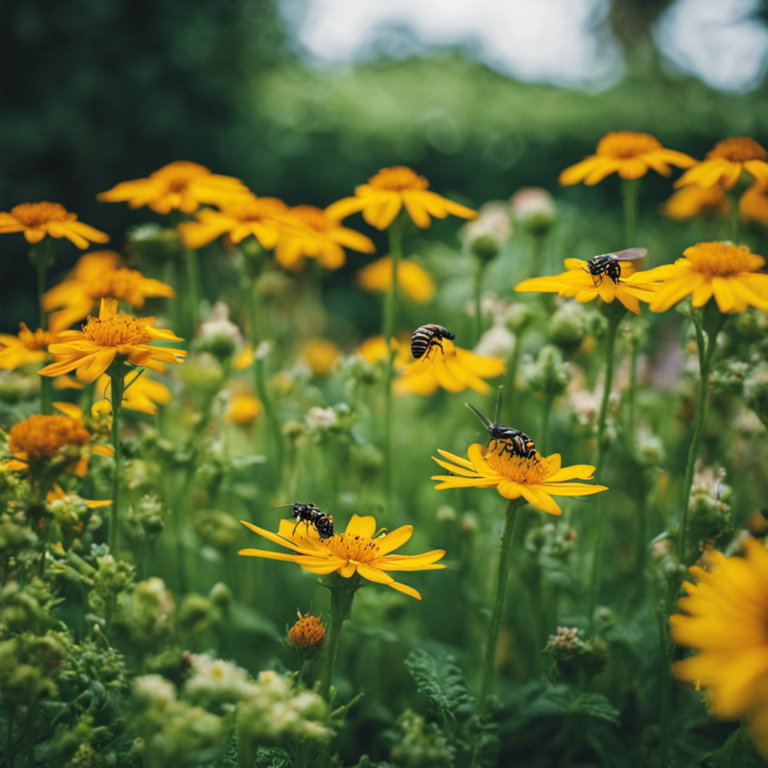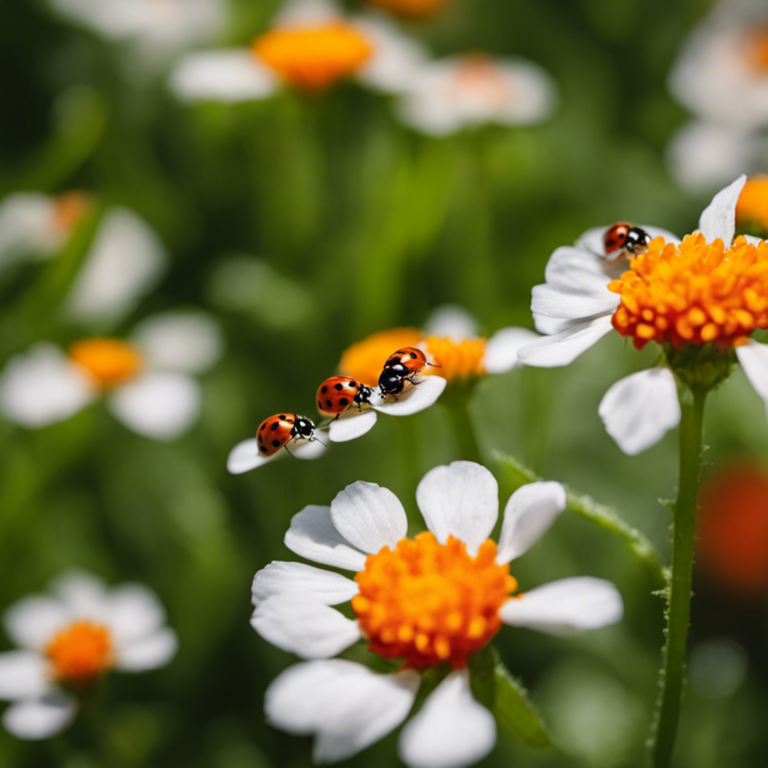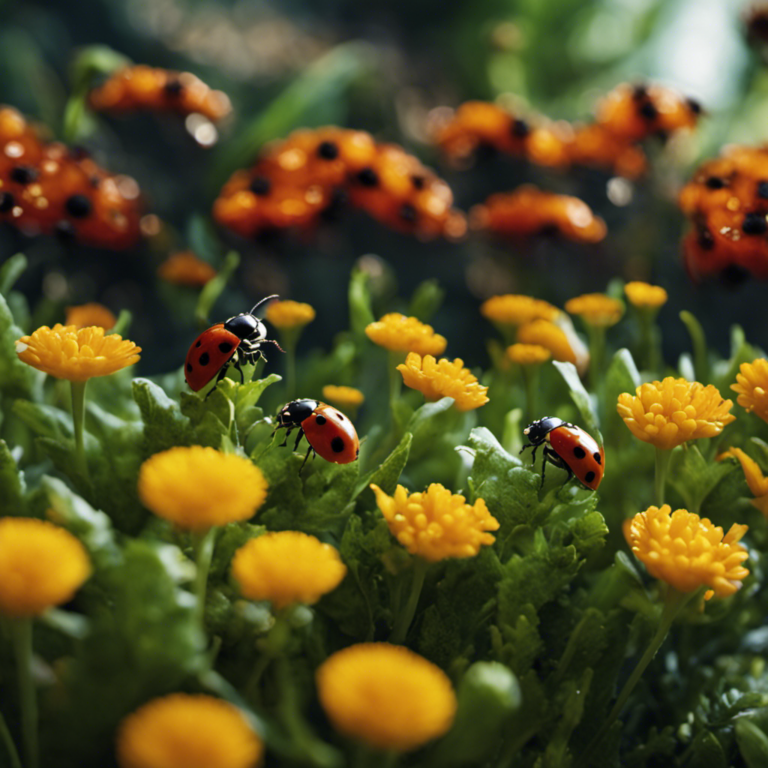Looking for ways to protect your garden from pests without using harmful chemicals? Want to embrace organic methods? In this article, we will explore simple yet effective techniques to outsmart garden pests.
You’ll discover natural repellents, the benefits of beneficial insects, the power of companion planting, the effectiveness of physical barriers, and the use of organic pesticides.
By implementing these methods, you can create a thriving and pest-free garden. Get ready to take control and create a haven for your plants and flowers.
Let’s dive in!
Key Takeaways
Discover Effective Organic Methods to Outsmart Garden Pests
Implementing organic methods, such as using natural repellents, attracting beneficial insects, practicing companion planting, employing physical barriers, and utilizing organic pesticides, can help you effectively outsmart garden pests. These techniques offer practical solutions that not only protect your garden but also promote its health and sustainability.
Don’t let pesky pests ruin your gardening experience. Take inspiration from nature and utilize these proven methods to maintain a thriving and pest-free garden. With a little knowledge and effort, you can become the master of your garden kingdom!
Remember, a healthy garden is a happy garden.
Natural Repellents

Protect your garden from pests using natural repellents that are safe for your plants and the environment. One effective method is using essential oils with insect-repelling properties like peppermint, lavender, and citrus. Create homemade remedies by mixing a few drops of these oils with water and spraying it on your plants. This not only deters pests but also leaves your garden smelling fresh.
Another option is planting companion plants that naturally repel pests. For example, marigolds repel aphids and nematodes, while garlic keeps mosquitoes and other insects away.
Beneficial Insects
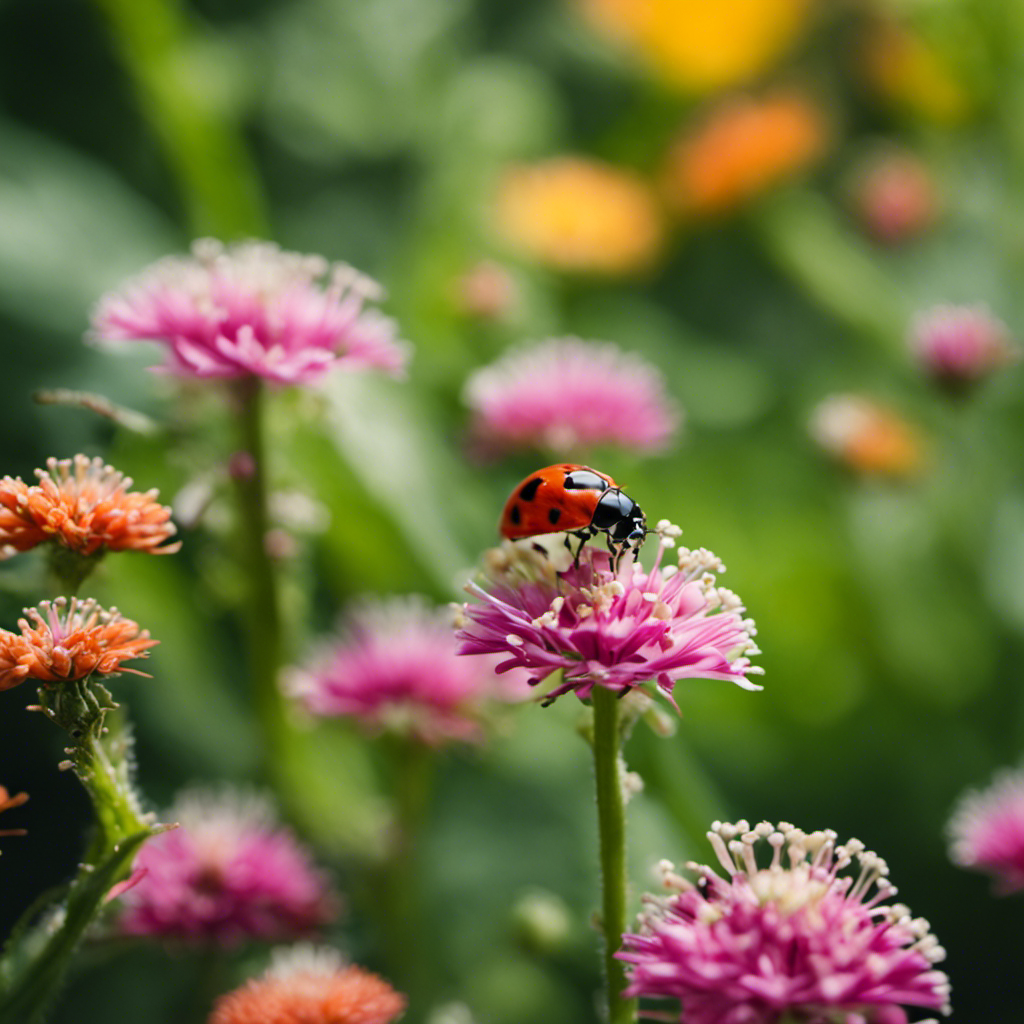
To improve your natural pest control methods, consider using beneficial insects to protect your garden from unwanted pests. These insects act as a natural pest management system and play a crucial role in maintaining a healthy garden ecosystem.
Ladybugs, lacewings, and praying mantises are examples of beneficial insects that feed on common garden pests like aphids, mites, and caterpillars, helping to keep their populations in check.
By attracting and supporting these helpful insects, you can significantly reduce the need for chemical pesticides and promote a more balanced garden environment.
To attract beneficial insects, plant a variety of flowering plants that provide nectar and pollen. Avoid using insecticides that harm both beneficial insects and pests.
Companion Planting

Companion Planting: An Organic Pest Control Method for Your Garden
One effective way to control pests in your garden is through companion planting. This natural method involves strategically planting certain crops together to create a balanced ecosystem that deters pests and promotes healthy growth.
Here are three ways companion planting can benefit your garden:
-
Crop rotation: By rotating crops each season, you can disrupt the life cycle of pests and prevent them from establishing a permanent presence in your garden. For example, you can plant tomatoes in one area one year and then move them to a different spot the following year. This simple practice can help reduce the risk of tomato diseases and pests.
-
Interplanting: Planting different crops together can confuse pests and discourage them from attacking your plants. For instance, by interplanting marigolds with vegetables like tomatoes or peppers, you can repel nematodes and aphids naturally.
-
Attracting beneficial insects: Some plants have the ability to attract beneficial insects that prey on garden pests. For instance, planting flowers like lavender or cosmos can attract ladybugs, which feed on aphids and other harmful insects. By incorporating these beneficial plants into your garden, you can create a natural balance and reduce the need for chemical pesticides.
By practicing crop rotation, interplanting, and attracting beneficial insects, companion planting offers a sustainable and eco-friendly way to maintain a healthy, pest-free garden. Give it a try and see the positive impact it can have on your plants and the environment.
‘Companion planting isn’t just about pest control; it’s about creating a harmonious ecosystem in your garden.’
Physical Barriers
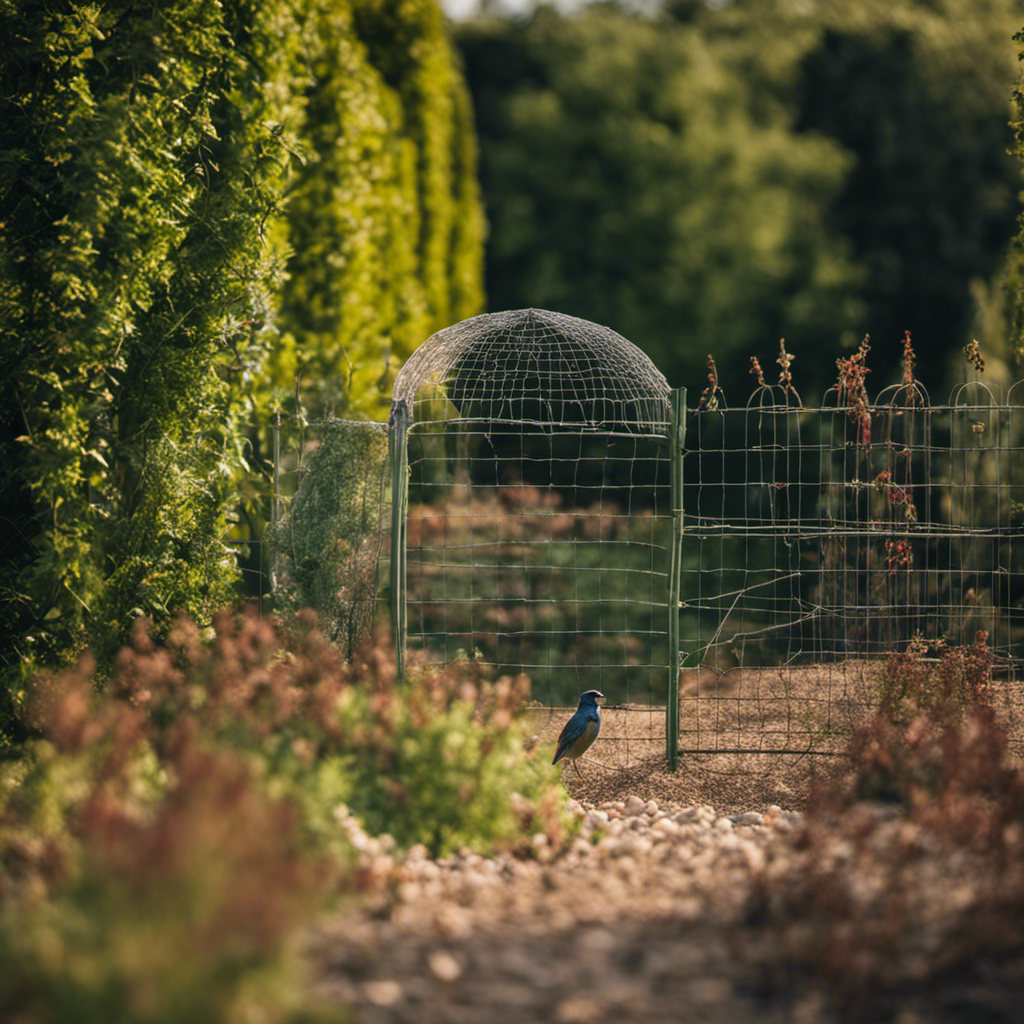
To effectively keep pests out of your garden, it’s important to regularly install physical barriers.
Pest exclusion plays a crucial role in maintaining a healthy and thriving garden. There are various techniques you can use to create these barriers.
One effective method is using netting or mesh to cover your plants. This prevents insects and animals from accessing your crops.
Another useful technique is installing fencing to create a physical boundary around your garden. This helps deter larger pests like deer or rabbits from entering and causing damage.
Additionally, you can utilize row covers to protect your plants from flying insects. These covers are lightweight, allowing sunlight and water to reach your plants while keeping pests out.
Organic Pesticides

Managing garden pests can be effectively done using organic pesticides. Unlike chemical sprays, organic pesticides are a safer option for both you and the environment. Let’s take a look at three homemade remedies that can help you keep pests at bay:
-
Neem oil: Derived from the neem tree seeds, neem oil possesses insect-repellent properties. Dilute it in water and spray it on your plants to deter pests like aphids and spider mites.
-
Garlic spray: Garlic acts as a natural insecticide and repels a wide range of pests. Crush a few garlic cloves, steep them in water overnight, strain the mixture, and spray it on your plants to keep pests away.
-
Integrated pest management: This approach involves using a combination of natural pest control methods. Attracting beneficial insects, practicing crop rotation, and maintaining healthy soil are some examples of integrated pest management techniques. By adopting these methods, you can effectively manage garden pests without relying on harmful chemicals.
Conclusion
By implementing organic methods such as natural repellents, beneficial insects, companion planting, physical barriers, and organic pesticides, you can effectively outsmart garden pests.
These techniques provide practical solutions and contribute to a healthier and more sustainable garden.
Don’t let pesky pests ruin your gardening experience. Take inspiration from nature and use these proven methods to keep your garden thriving and pest-free.
With a little knowledge and effort, you can become the master of your garden kingdom!

